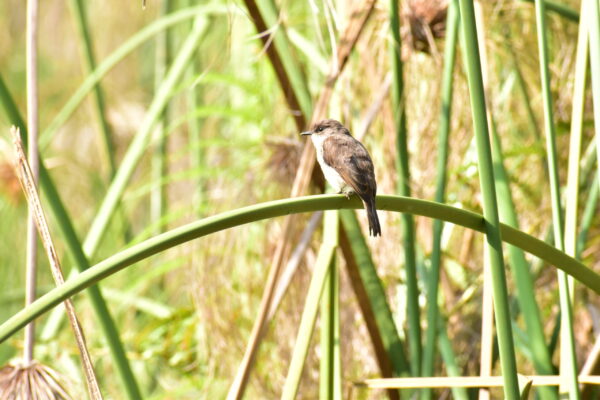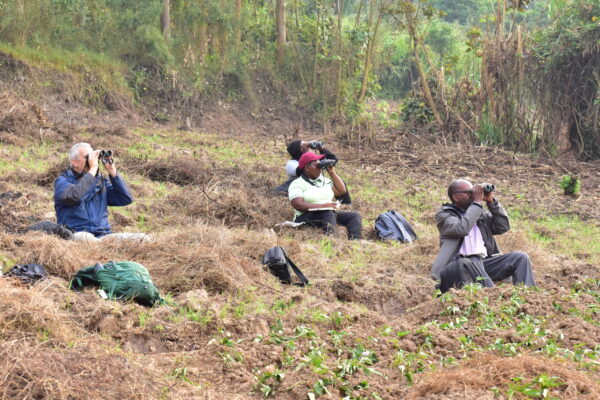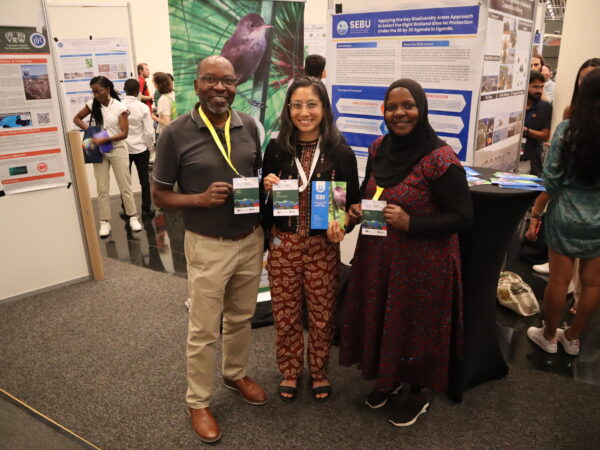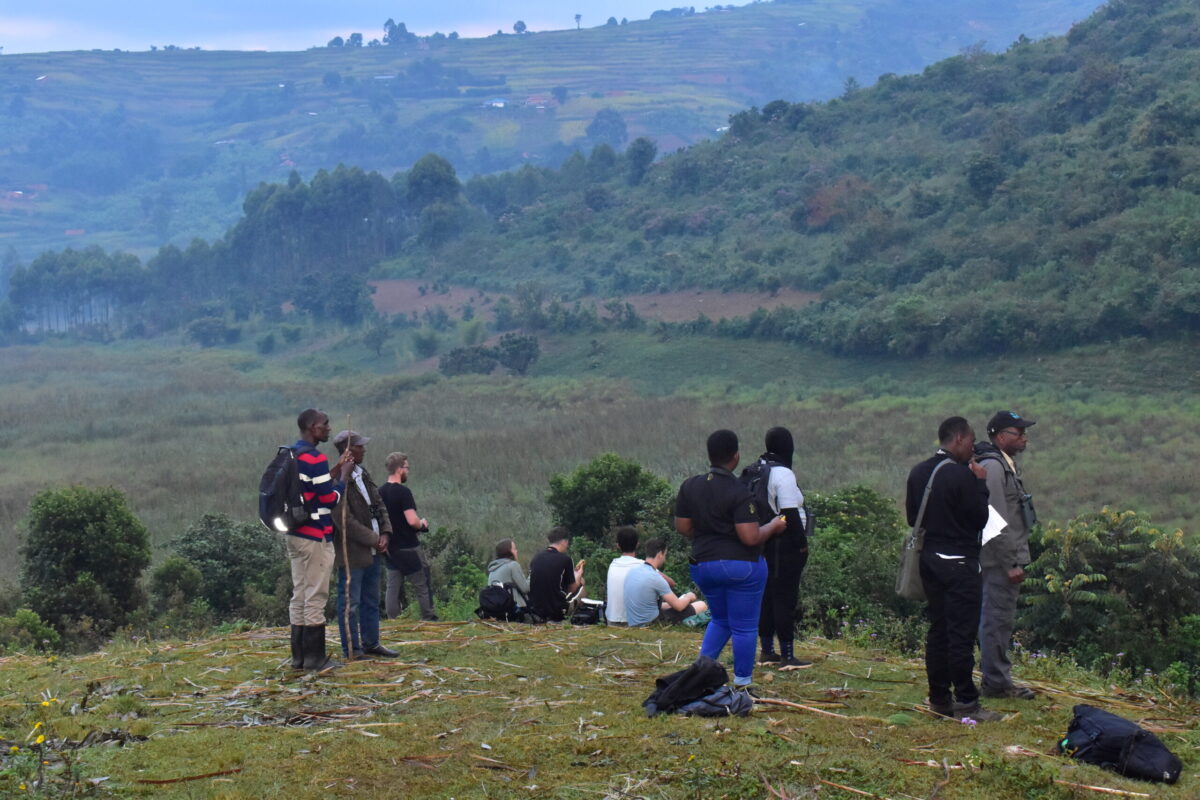JRS grantee Kabale University has made a strong start with the Site Selection to Protect Papyrus Endemic Biodiversity in Uganda (SEBU) project. Project director, Associate Professor Sarah Nachuha, and her team of 7 students from Kabale University and the University of Exeter started their field research in Ugandan papyrus wetlands with a three-week field data collection survey at sites in Lake Bunyonyi, Lake Mutanda and Lake Mulehe. Students were trained in bird call identification, conducting point counts, swamp area estimation, swamp vegetation assessment, and data collection.

All the five species of Papyrus endemic birds (Greater Swamp Warbler Acrocephalus rufescens (LC) Papyrus Yellow Warbler Calamonastides gracilirostris (VU) White-winged Swamp-warbler Bradypterus carpalis (LC) Carruthers’s Cisticola Cisticola carruthersi (LC) Papyrus Canary Crithagra koliensis (LC) were seen and heard. Eleven amphibian species were seen/heard from 80 sampling points (Lake Bunyonyi: 56; Lake Mutanda: 20; Lake Mulehe: 4). Of these, 9 were fully identified as: Flat-backed Toad Sclerophrys maculatus, Kisolo Toad Sclerophrys kisoloensis, Kivu Reed Frog Hyperolius kivuensis, Common Reed Frog Hyperolius viridiflavus; Senegal Kassina Kassina senegalensis; Albertine Rift Tree Frog Leptopelis kivuensis; Dwarf Puddle Frog Phrynobatrachus mababiensis; Mascarene Grass Frog Ptychadena mascareniensis, and Angola River Frog Amietia angolensis.

All these species are categorized as Least Concern by 2021 Red List of threatened species. There were no reptiles encountered during the survey. Residents however mentioned the presence of brown snakes, black snakes and green snakes. Presence of chameleons was also reported especially for Wetlands around Lake Bunyonyi.
Dr. Nachuha and her team also introduced the SEBU project at the International Congress for Conservation Biology in Kigali, Rwanda in July where they were also able to meet with meet with key project stakeholders GBIF, KBA secretariat, and the Albertine Rift Conservation Society (ARCOS).

Read more about this JRS funded project here.
Visit the Kabale University project website.

